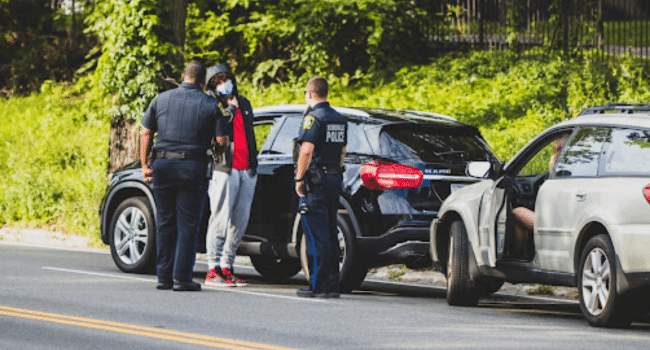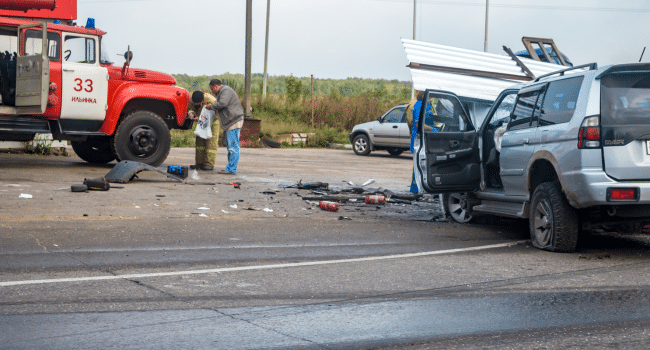Table of Contents
Car accidents, unfortunately, are a common occurrence, resulting from a myriad of reasons ranging from simple driver distractions to treacherous weather conditions. In the aftermath of such an event, it is crucial to stay calm and be proactive. Although you might be shaken, taking appropriate steps can ensure the safety of everyone involved and provide a clear record of the incident. This is especially true if you happen to be involved in a collision in a bustling city. For instance, should an accident occur in Windy City, knowing the steps to take can be as essential as having the contact information of a reliable car accident lawyer Chicago professional.
1. Ensure Safety First
Right after the accident, safety should be your priority. If possible and safe, move your vehicle to the side of the road, away from traffic. If you can’t move the vehicle, turn on your hazard lights to warn other drivers. Check yourself and your passengers for injuries. Even if they seem minor, it’s essential to get medical attention. Some injuries may not manifest symptoms immediately.
2. Call 911

No matter the severity of the accident, it’s crucial to inform the police. They will provide medical assistance, if needed, document the accident, leading to an official accident report which can be vital for insurance and legal purposes, and control and divert traffic, ensuring further safety.
3. Exchange Information
Interact with the other driver involved in the accident and exchange the following details:
- Name, address, and phone number.
- Insurance company and policy number.
- Vehicle details, including the model, color, and registration number.
- Driver’s license number.
However, avoid discussing who’s at fault or offering more details than necessary. Your insurance company and possibly a lawyer will handle the intricacies.
4. Document the Accident Scene
Gathering evidence at the scene can be invaluable in future claims or disputes. Here’s how to go about it:
- Photograph the Scene: Take pictures of your car, the other vehicle(s), and any evident damages. Capture skid marks, road signs, and traffic lights that might have contributed to the accident.
- Talk to Witnesses: If there are bystanders or people who saw the accident, get their contact details. Their testimonies could be essential in the future.
- Make Personal Notes: Jot down specifics about how the accident occurred. Over time, memories can fade, so having a written record ensures accuracy.
5. Notify Your Insurance Company
After ensuring everyone’s safety and gathering the necessary details, contact your insurance provider as soon as possible. They’ll guide you on the next steps to take and inform you about any coverage you might be entitled to.
6. Seek Medical Attention
Even if you feel okay after the accident, seeking medical attention is a must. As mentioned earlier, some injuries might not show symptoms immediately but could be severe. Having a medical report will also serve as a record, which can be crucial for insurance claims or potential lawsuits.
7. Maintain a Record
After the accident, you’ll have various documents, from the police report to medical bills and insurance communications. It’s essential to organize and keep all these documents together. This compilation will aid you in tracking your recovery process and be indispensable in any legal or insurance-related matters.
8. Consider Legal Advice
Depending on the severity of the accident, it might be wise to consult a lawyer. They can help you understand your rights, advise you on potential compensation, and represent you in any legal proceedings or disputes with insurance companies.
9. Understanding Insurance Coverage
After an accident, understanding your insurance policy becomes crucial. Your insurance provides a safety net, but knowing its depth is essential.
- Collision Coverage: This typically covers damages to your vehicle, irrespective of who was at fault.
- Liability Coverage: If you’re found to be at fault, this covers the damage you might have caused to others—be it their car, property, or personal injuries.
- Uninsured/Underinsured Motorist Coverage: If the other driver doesn’t have adequate insurance, or none at all, this helps cover your costs.
- Comprehensive Coverage: This goes beyond accident-related damages. It includes theft, vandalism, or natural disasters.
Always review and understand your policy limits and deductibles.
10. Monitor Your Mental Health
Physical injuries are apparent, but a car accident can also have a profound impact on mental health. Trauma, anxiety, and even post-traumatic stress disorder (PTSD) can emerge after an accident. Therapy can help you process the event and your emotions. It’s essential to address mental scars as you would physical ones. Sharing experiences with others who’ve been through similar situations in a support group can also be healing.
11. Repairing Your Vehicle
Your car might require minor fixes or extensive repairs. While your insurance company might suggest places, you generally have the right to select a repair shop of your choice. After-market or generic parts can be inferior. Ensure your vehicle retains its original value and safety by insisting on original equipment manufacturer parts.
12. Dealing with Total Loss
If repair costs surpass the car’s value, it’s deemed a total loss. In such cases, it’s important to know your rights. Some states have specific regulations on how insurers determine total loss. Familiarize yourself with these. If you believe the insurer’s offer isn’t fair market value, present evidence to back your claim. Dealer quotes, online listings, online searches for “what is the salvage value of my car” or independent appraisals can serve this purpose.
13. Future Prevention Strategies
Once you’ve dealt with the aftermath, consider ways to reduce future risks:
- Defensive Driving Courses: These courses equip you with skills to anticipate potential hazards and respond to emergency situations.
- In-car Safety Tools: Consider investing in dash cams. They can capture real-time events, providing an indisputable account of any incident.
- Regular Vehicle Maintenance: Ensure brakes, lights, and other critical systems are in top condition. This can help prevent accidents due to vehicle malfunctions.
14. Beware of Scams
Unfortunately, some individuals exploit car accidents for personal gain. Beware of fraudulent medical clinics. These clinics might exaggerate your injuries or bill for unnecessary treatments. Also, keep an eye out for towing scams. Only use licensed and reputable tow companies. Some might overcharge or even hold your car hostage for inflated fees.
For more information on car towing be sure to head over to Sheen Group.
15. Communicating with Others Post-Accident
After an accident, it’s imperative to be cautious about your communications. Even if you believe you were responsible, there might be factors you’re unaware of. Leave the liability determination to professionals. Further, posting about the accident on social media can have unforeseen consequences. The other party’s insurer or lawyer might use your posts against you.
16. Evaluating the Need for New Insurance

A post-accident period is an opportune time to review your insurance: After an accident, your rates might increase. Shop around to ensure you’re still getting the best deal. If your circumstances have changed or if the accident revealed coverage gaps, adjust your policy accordingly.
17. Economic and Non-economic Damages
In cases where you’re pursuing compensation, it’s essential to differentiate between economic damages and non-economic damages. Economic damages are tangible, like medical bills or lost wages. They have a clear monetary value. Non-economic damages relate to pain, suffering, or loss of life quality. They’re subjective and can vary greatly in value.
Conclusion: The Road to Recovery After a Car Accident
The immediate aftermath of a car accident can be overwhelming and stressful. However, by taking systematic steps, you can ensure the safety and well-being of everyone involved. Remember to prioritize safety, document the scene, keep a thorough record, and seek professional advice when needed. With diligence and patience, you can navigate the complexities of the post-accident process and embark on the road to recovery.
Read More on KulFiy
Things that you can Expect from a Personal Injury from after Facing an Accident
7 Things You Need To Consider When Hiring A Lawyer Following A Car Accident
Top Mistakes That’ll Hurt Your Car Accident Lawsuit
